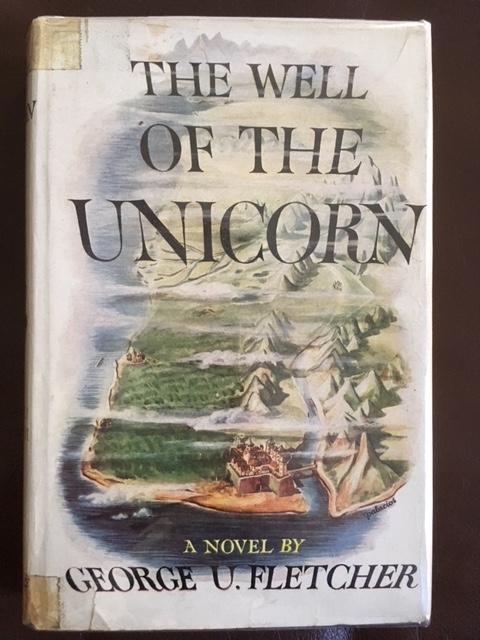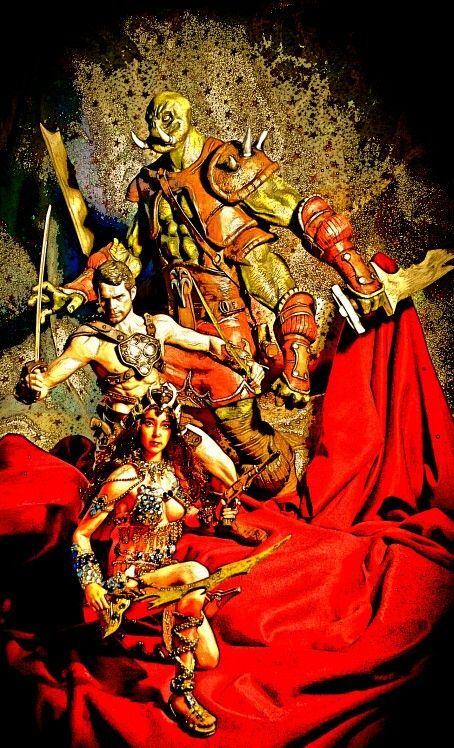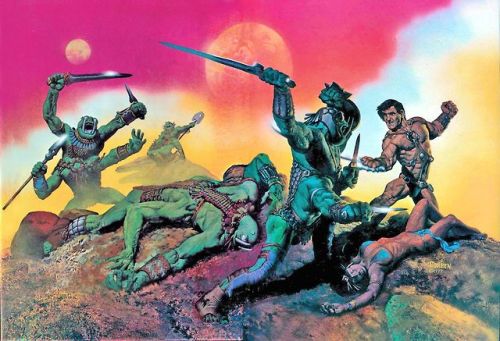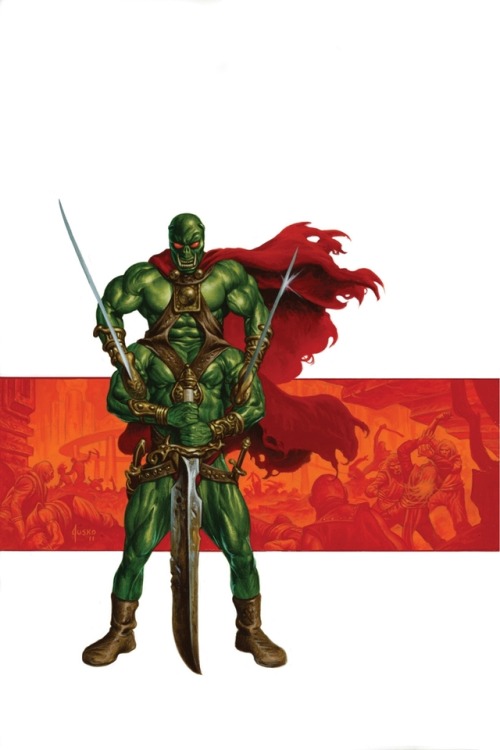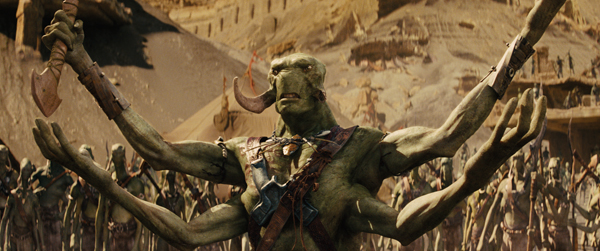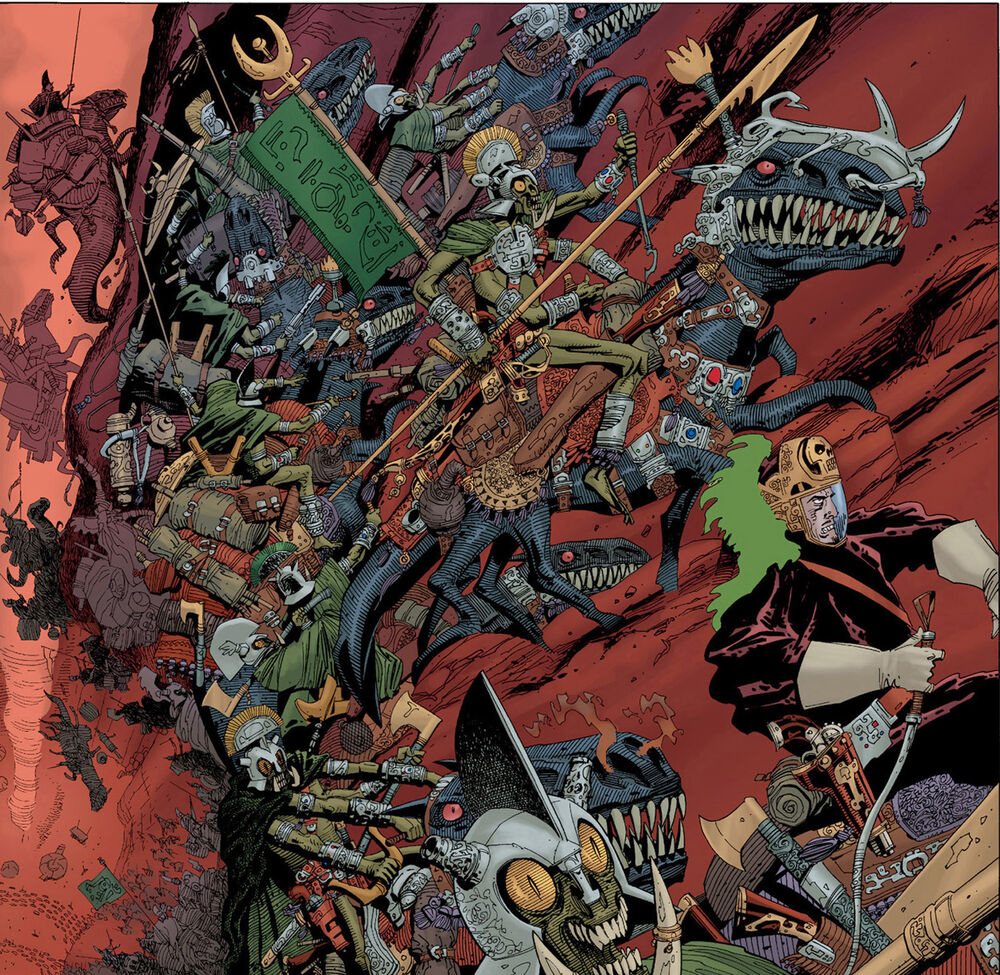Some of my reading list is calculated and planned, part of reading reviews and picking up on references or following certain authors. Some of it is pure coincidence. This was a coincidence: I found a Loeb Classical Library edition of the first few books of Appian's Roman History. This is partially fragmentary, particular the early sections dealing with the young Kingdom and Republic. But this volume covers up until the end of what we call the Third Punic War (Appian's terminology differs slightly). Appian was a Greek official, based in Alexandria and a Roman citizen. He lived at least until the reign of the Emperor Trajan.
I'm not going to discuss all the events covered by Appian's history here. You likely know a number of them already, or have some image of them - Hannibal taking his elephants across the Alps and rampaging around the Italian peninsula, Cato the Elder's catchphrase. Instead, I'm going to examine certain elements from Appian and suggest them as world-building elements.
***
Appian is writing in Greek about Romans, Italians, Celts, Iberians, Numidians and Carthaginians. The advantage of the Loeb books is that they present the original text of the work side by side with the translation. Greek has no letter H, Q, V or W and so we see some odd transliterations in the Greek, reproduced below.
'Amilcar [Hamilcar]
'Annibal [Hannibal]
'Asdroubal [Hasdrubal]
Ma'arbal [Maharbal]
Phoulouius Phlakkos [Fulvius Flaccus]
Kointos Pompeios Aulos [Quintus Pompeius Aulus]
Oualerios [Valerius]
Ouolouski [Volsci].
For the last two above, consider the pronunciation of the French oui, or the Mexican state of Oaxaca.
 |
| A purely coincidental picture of Ralph Fiennes as Coriolanus, from a 2011 film adaptation. |
As fun as it may be to wrap your tongue round some of these, pronouncing names differently or using different formulations may be a better tabletop methods for indicating cultural differences than an entire new language or an attempted accent (my Peter Lorre or Humphrey Bogart might be pretty good, but do you want an entire city full of Bogarts?). Hasbrubal can become Asdroubal, just as Solomon can become Suleiman, or Thor can become Thunor can become Donner. Saint Ottoline can become the Blessed Ottoline, or Holy-most Ottoline or Ottoline Beata.
Wikipedia's Names for Germany is an interesting example of intersecting language groups, and rewards study.
***
The Saguntines, when they despaired of help from Rome, and when famine weighed heavily upon them, and Hannibal kept up the siege without intermission (for he had heard that the city was very prosperous and wealthy, and for this reason relaxed not the siege), issued an edict to bring all the silver and gold, public and private, to the forum, where they melted it with lead and brass, so that it should be useless to Hannibal.
The Wars in Spain, 2.12
As you can imagine, Hannibal reacted badly to this. But the notion of an opponent trying to ditch or spoil their treasure is arresting. If Our Heroes have blazed through the Platinum Immortals of the Supreme Syndic far quicker than the GM might reasonably predicted, discovering that an objective is imperilled keeps the action meaningful. Of course, paper money, share certificates, top-secret dossiers and tomes of eldritch lore can all be burnt. But the danger of hot crucibles and the haste of loot-hungry adventurers has a certain high drama to it.
***
At the end of the year, Fabius Maximus Servilianus, the brother of Aemilianus, came to succeed Quintus in the command, bringing two new legions from Rome and some allies, so that his forces altogether amounted to about 18,000 foot and 1,600 horse. He wrote to Micipsa, king of the Numidians, to send him some elephants as speedily as possible. As he was hastening to Itucca with his army in divisions, Viriathus attacked him with 6,000 troops with great noise and barbaric clamour, and wearing the long hair which in battles they are accustomed to shake in order to terrify their enemies, but he was not dismayed. He stood his ground bravely, and the enemy was driven off without accomplishing anything.
The Wars in Spain, 12.67
Images of long-haired barbarians and Romans with sensible short-back-and-sides isn't really anything new, but the impression Appian gives us of hair as a form of psychological warfare is quite fun.
***
This victory raised the spirits of the Romans, but the next night they were seized with panic. A body of the enemy's horse who had gone out foraging before Lucullus arrived, returned and not finding any entrance to the city because it was surrounded by the besiegers, ran about shouting and creating disturbance while those inside the walls shouted back. These noises caused strange terror in the Roman camp. Their soldiers were sick from want of sleep, and because of the unaccustomed food which the country afforded. They had no wine, no salt, no vinegar, no oil, but lived on wheat and barley, and the flesh of deer and rabbits boiled without salt, which caused dysentery, from which many died.
The Wars in Spain, 9.54
Drink no longer water, but use a little wine for thy stomach's sake. The notion of dysentery ravaging the armies of the classical and medieval worlds is probably not new to you, but here is a fine example of it. The passage is also a reminder of the necessity of things like salt. While it may be that a game renders food as one element alone('Rations', 'Elven waybread'), here's a reminder of the necessity of a varied diet.
***
Fetial priests appear in Appian as part of the negotiations in sieges, or dealing with the various embassies from Celtic nations or Carthage. Livy describes parts of fetial ceremonies:
Then the Pater Patratus, who is constituted for the purpose of giving the treaty the religious sanction of an oath, did so by a long formula in verse, which it is not worth while to quote. After reciting the conditions he said: "Hear, O Jupiter, hear! thou Pater Patratus of the people of Alba! Hear ye, too, people of Alba! As these conditions have been publicly rehearsed from first to last, from these tablets, in perfect good faith, and inasmuch as they have here and now been most clearly understood, so these conditions the People of Rome will not be the first to go back from. If they shall, in their national council, with false and malicious intent be the first to go back, then do thou, Jupiter, on that day, so smite the People of Rome, even as I here and now shall smite this swine, and smite them so much the more heavily, as thou art greater in power and might." With these words he struck the swine with a flint.
Livy, History of Rome, 1.24
In order, therefore, that wars might be not only conducted but also proclaimed with some formality, he wrote down the law, as taken from the ancient nation of the Aequicoli, under which the Fetials act down to this day when seeking redress for injuries. The procedure is as follows: -
The ambassador binds his head in a woollen fillet. When he has reached the frontiers of the nation from whom satisfaction is demanded, he says, "Hear, O Jupiter! Hear, ye confines" - naming the particular nation whose they are - "Hear, O Justice! I am the public herald of the Roman People. Rightly and duly authorised do I come; let confidence be placed in my words." Then he recites the terms of the demands, and calls Jupiter to witness: "If I am demanding the surrender of those men or those goods, contrary to justice and religion, suffer me nevermore to enjoy my native land." He repeats these words as he crosses the frontier, he repeats them to whoever happens to be the first person he meets, he repeats them as he enters the gates and again on entering the forum, with some slight changes in the wording of the formula. If what he demands are not surrendered at the expiration of thirty-three days - for that is the fixed period of grace - he declares war in the following terms: "Hear, O Jupiter, and thou Janus Quirinus, and all ye heavenly gods, and ye, gods of earth and of the lower world, hear me! I call you to witness that this people" - mentioning it by name - "is unjust and does not fulfil its sacred obligations. But about these matters we must consult the elders in our own land in what way we may obtain our rights."
With these words the ambassador returned to Rome for consultation. The king forthwith consulted the senate in words to the following effect: "Concerning the matters, suits, and causes, whereof the Pater Patratus of the Roman People and Quirites hath complained to the Pater Patratus of the Prisci Latini, and to the people of the Prisci Latini, which matters they were bound severally to surrender, discharge, and make good, whereas they have done none of these things - say, what is your opinion?" He whose opinion was first asked, replied, "I am of opinion that they ought to be recovered by a just and righteous war, wherefore I give my consent and vote for it." Then the others were asked in order, and when the majority of those present declared themselves of the same opinion, war was agreed upon. It was customary for the Fetial to carry to the enemies' frontiers a blood-smeared spear tipped with iron or burnt at the end, and, in the presence of at least three adults, to say, "Inasmuch as the peoples of the Prisci Latini have been guilty of wrong against the People of Rome and the Quirites, and inasmuch as the People of Rome and the Quirites have ordered that there be war with the Prisci Latini, and the Senate of the People of Rome and the Quirites have determined and decreed that there shall be war with the Prisci Latini, therefore I and the People of Rome, declare and make war upon the peoples of the Prisci Latini." With these words he hurled his spear into their territory. This was the way in which at that time satisfaction was demanded from the Latins and war declared, and posterity adopted the custom.
Livy, 1.32
Appian has the lack of a fetial serve as an indicator of implacability.
While Pontius was speaking the old man burst into tears, then seated himself in his carriage and went back to Caudium. Pontius then summoned the Roman envoys and asked them if they had any fetial priest with them. There was none present because the army had marched to undertake an irreconcilable, implacable war.
Appian, The Samnite History
There's a few things I would take from this. Firstly, that even if a modern reader might know not to expect the 'separation of church and state', it is still possible to underestimate the extent to which religion and state power entwined. (A timely reminder that Julius Caesar and the Emperors were also Pontifex Maximus). A bishop can be seen as advising a king, still somehow a third party - he's not the Chancellor (though a Cardinal might be...), or the Grand Marshal. Even given that we are seeing a 'polished-up' account of the fetials, they still seem to have a distinct place within the state apparatus.
Secondly, that there is quite a lot about Rome that hearkens back to the laws and mores of an individual city-state. Even if we can associate it with progress and the march of history (Classical architecture = Enlightenment, Classical architecture = Rome, Rome = Enlightenment, 'What have the Romans ever done for us', &c), that's not always something that holds terribly true. This scene (an image of which is below) from the HBO series Rome, with its images of blood sacrifice, face-painting, staring dragon totems, eerie hooting trumpets and public execution is a relevant counter. Having a fantasy Rome equivalent have its legions with as many charms and streaks of warpaint as the stereotyped warrior of the Great Plains would not be inappropriate.

(Looking up certain Roman priesthoods and festivals - the Flamens, the Salii, Lupercalia - may be helpful.)
Thirdly, the image of the priest as an envoy is an arresting one. The image of priest as peacemaker - Friar Lawrence in Romeo and Juliet - is hardly new, but having a cleric at the tabletop with very specific powers to oversee oaths or to sanctify action is interesting. It's an image of a cleric as a Charisma-based 'face' character which could be an interesting variation. A use of Abjuration or Mental spells schools would be apt, though some adaptation may be necessary.


